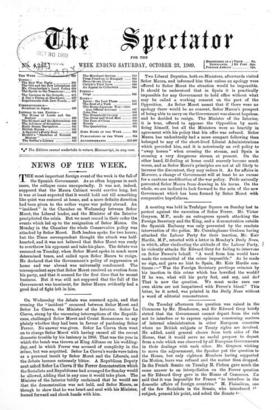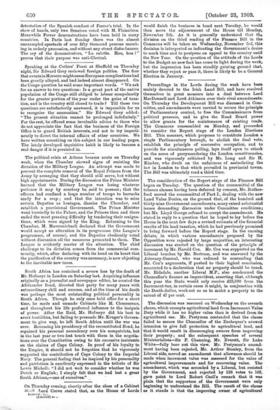On Tuesday afternoon the question was raised in the Commons
by Mr. Henderson, and Sir Edward Grey briefly stated that the Government cannot depart from the rule not to interfere or to express opinions concerning matters of internal administration in other European countries where no British subjects or Treaty rights are involved. He added, amid general cheers from both sides of the House, that it would serve no useful purpose to depart from a rule which was observed by all European Governments in their dealings with each other. Mr. Grayson wishing to move the adjournment, the Speaker put the question to the House, but only eighteen Members having supported the Motion, leave was refused and the matter then dropped. In the French Senate on Tuesday M. Pichon gave much the same answer to an interpellation on the Ferrer question as Sir Edward Grey gave in the House of Commons. Ile said that it was impossibje for France "to interfere in the domestic affairs of foreign countries." M. Flaissieres, one of the few Socialists in the Senate, who introduced I-1— subject, pressed his point, and asked the Senate t.r.
detestation of the Spanish conduct of Ferrer's trial. In the show of bands, only two Senators voted with M. Flaissieres. Meanwhile Ferrer demonstrations have been held in many countries. In Paris last Sunday there was the almost unexampled spectacle of over fifty thousand persons march- ing in orderly procession, and without any street disturbances. The cry of the demonstrators, "La calotte. Hou, hou I" proves that their purpose was anti-Clerical.











































